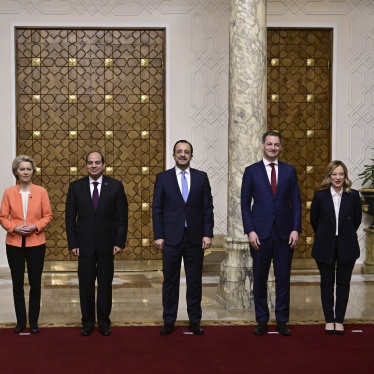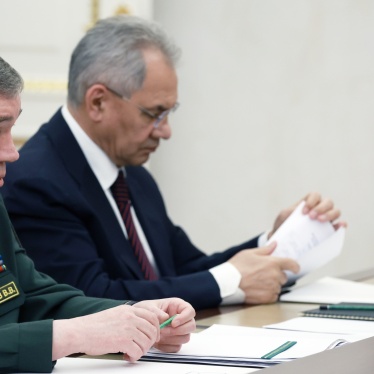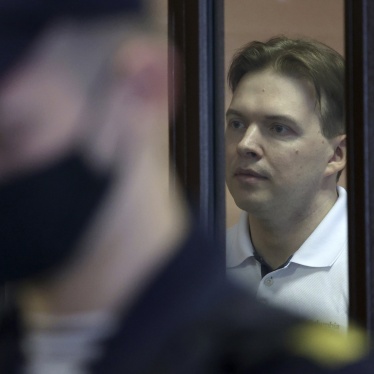Human Rights Watch researchers on the Chechen-Ingush border have learned of new Russian attacks over the past three days in the central and western parts of Chechnya. The attacks have taken a heavy toll on civilians.
Witnesses report that heavy bombing in the Chechen capital of Grozny left at least eight civilians dead on Sunday, November 7. "Vakha," a forty-year-old businessman, reported that a series of four explosions on Lenin Street near a railroad tunnel overturned a truck transporting civilians, killing eight people inside. The witness saw the bodies being carried away for burial only minutes after the explosion. Seventy-year-old Ali Magomadov saw five of his neighbors killed in an air attack on the Oktyabrskii district of Grozny on Friday morning, November 5, and said there were no sheets to wrap the bodies. Shelling continued on Sunday and Monday, he reported.
Six airplanes were involved in the attack around midday on Sunday. The aircraft began bombing the northern part of the city, and then shifted to the city center where the truck was hit. According to "Vakha," the attack could have been aimed at what he believed was the residence of a Chechen commander, some 200 yards away. However, "Vakha" and three others who saw casualties of bombs attacks on Grozny over the past four days claimed that they saw only civilian casualties.
Witness accounts contradict recent claims by Russian officials that civilians are not suffering unduly. On Friday, Valery Manilov, first deputy chief of Russia's general staff, said, "Attempts to convince the world that...we are using disproportionate force, that the refugees are in a horrible situation— this is not at all true..." Russian authorities have barred foreign journalists from entering Chechnya, making it impossible to confirm witness accounts.
Having heard of the attacks in Grozny, "Roza," 42, came from a nearby suburb to look for her husband. She found only the remains of their apartment building, which was hit in the Sunday attack. She told Human Rights Watch that she feared her husband might remain in the rubble. "I saw with my own eyes pieces of human bodies scattered in the street," Roza said.
Russian aircraft also continued to bomb Urus-Martan, a town fifteen miles south of Grozny, over the weekend.
A fifty-two year-old engineer, also named Vakha, reported that water is so scarce in Grozny that people are melting the season's first snow for consumption. He fled the capital only this morning, repeating claims made by numerous witnesses that civilians are crouching in basements for hours during bombing runs, with little to eat and only firewood for heat. One witness said, "What is sad is that the ones who remain in Grozny are those who cannot leave because of old age, infirmity, or [the need to care for] sick relatives. I stayed to care for my ill sister until yesterday, when I left her with elderly neighbors."
During visits to the Chechen border, Human Rights Watch researchers have also learned that people driving vehicles must wait up to three days to leave the war-torn republic. Russian authorities have recently established a more rapid screening procedure permitting Chechens to leave, reducing significantly the estimated 40,000-person backlog of last week. However, approximately two thousand people still line the highway out of Chechnya waiting to pass multiple checkpoints spread over four miles. Although persons on foot or using public transportation may now cross the border into the neighboring Russian republic of Ingushetia within hours, those in their own vehicles have waited up to three days to depart Chechnya.






